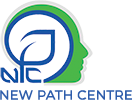ADHD Assessment:
individuals with symptoms of ADHD demonstrate a persistent pattern of inattention and/or hyperactivity-impulsivity.
What is the difference between energetic behavior and ADHD? Children with behavior that is extreme is considered average when compared with their peer group may have ADHD. Some children exhibit extreme hyperactivity, impulsivity and/or inattentiveness . Some display more of some symptoms than others.
These kids are into everything, running and jumping non-stop. They can’t sit still and often talk constantly. Psychologists describe this behaviour as ‘being driven by a motor’. This child can’t concentrate for long on anything. Interestingly, fast moving images such as a computer game will sometimes hold their attention.
Some children simply can’t focus, or have trouble planning, managing and organizing their belongings or activities. They may start a task but never finish it.
Though quiet and able to monitor most hyperactivity, these children are seldom able to sustain attention, initiate a task and then monitor their performance until the task is finished properly.
Some children exhibit significant symptoms of extreme hyperactivity, impulsivity and chronic inattention. They might find it difficult to share, take turns, allow others to talk, finish homework or keep track of their own belongings.
In our center we review:
● Individual’s full history
● Prior evaluations, educational reports
● Comorbidity/socio-emotional screening
● Self, parent, observer, and teacher-rated questionnaires
● Recommendations for academic, vocational, and family functioning
● Full written report
The cost is $1,500. Please contact (416) 843 96-45 with any further questions.
Giftedness Assessment:
Giftedness testing is used to determine whether or not a child or youth’s intellectual ability (IQ) is in the range that would allow them to qualify for access to educational programs dedicated to students who are considered gifted. Giftedness testing is not as involved as a psychoeducational assessment as it only considers intellectual ability, and thus cannot determine the presence of a learning disability.
The cost including report is $1,000. Please contact 416 843 9645 with any questions or to schedule a Gifted Assessment.
Psychoeducational assessment and Cognitive Profile
A Psychoeducational Assessment is considered the best mean of gaining an in-depth understanding a students learning style and their potential to learn in future.
At New Path Centre we provide diagnostic psychoeducational assessmenst and cognitive profile by qualified psychologist, which are accepted by school boards for student with Learning Disabilities and Giftedness designation.
This testing includes:
Reading: Children who are struggling to learn how to read may be having difficulty in one or more areas. For example, a child who is experiencing difficulty reading may have difficulty remembering what letters of the alphabet look like or the sounds that letters make). The truth is that there are many, many issues that might impact a child’s ability to learn to read.
Mathematics: L ags in developing math skill can be attributed to different causes. For example, a person may find it difficult to understand or name math terms, operations or concepts. By grade-3, language skills are needed to ‘decode’ written problems into math symbols or arithmetic signs
Written Expression: Written production is one of the most complex and demanding of the academic skills. It requires language skill, organization and planning skills, good working memory, an ability to remember letter sequences in common words, graphomotor skill and a strong understanding of writing and spelling techniques. It is also strongly impacted by motivational and attitudinal components.
Executive Functioning: A Psychoeducational Assessment (Educational Assessments) is considered the best means of gaining an in-depth understanding a student’s learning style and better still, their potential to learn in future.

